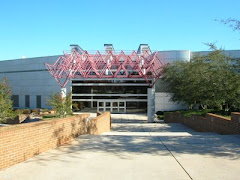We want students in the DL courses to obtain skills for conducting academic research. While the students that attend our on-campus workshops obtain solid instruction on the research process through a face-to-face workshop, we felt that the students in the DL courses were missing this key element of the overall English curriculum for the entry-level courses. As a result, students in the DL English courses were advancing through their academic careers with no clear guidance on what a true academic source for research is. Additionally, they had no knowledge on the methods available for obtaining academic sources from the library’s databases. By embedding library services into the entry-level DL courses, we were able to provide more direct support and instruction to this segment of the academic population.
The provision of these services contained some challenges and many successes. They are outlined below:
- The students enrolled in the DL courses must take the initiative to participate and experience success. We offered events, such as live chat sessions for research assistance, that the students often neglected to take advantage of. While there was a level of frustration related to this lack of participation, we felt that it was important to reach out to the students and offer the service. Their willingness to take advantage of it was entirely up to them, but as a college, we were working to provide an alternative connection between the English DL students and the library department through these live chat sessions.
- The provision of DL websites that provided library resources specifically for the research projects required of the students was beneficial and utilized by the students. For each course that we were embedded in, we designed a project-specific webpage that contained links to sources directly related to the requirements of the course’s research project. These step-by-step web guides assisted the DL students, as they progressed through the requirements of their research project. The current Tri-County Technical College DL pages are: http://library.tctc.edu/DLENG101, http://library.tctc.edu/DLENG102, and http://library.tctc.edu/ENG156
- As embedded librarians, we sent weekly emails to the students. These emails were designed to highlight the databases that would most benefit the students, based on the DL courses they were involved in. Additionally, they provided an opportunity for a direct connection to exist between the librarians and the DL students enrolled in the English courses. If the students had further questions, they could easily reply to the librarian to get additional information about the library, academic sources, and the research process.




No comments:
Post a Comment